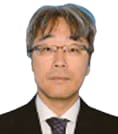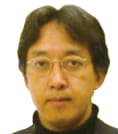- JST Home
- /
- Strategic Basic Research Programs
- /
 CREST
CREST- /
- Research Director/
- Symbiotic Interaction: Creation and development of core technologies interfacing human and information environments/
- [Symbiotic Interaction] Year Started : 2017
[Symbiotic Interaction] Year Started : 2017
Takeo Igarashi
Interaction techniques for understanding and control of data-driven inteligent information systems
Grant No.:JPMJCR17A1
Research Director
Takeo Igarashi

Collaborator
| Yonghao Yue | |
| Taichi Kin | Specially Appointed Associate Professor The University of Tokyo Hospital The University of Tokyo |
| Issei Sato | Professor Graduate School of Information Science and Technology The University of Tokyo |
Outline
Data-driven intelligent information processing technologies such as machine learning are growing rapidly. In this research, we develop interaction technologies to support the user to understand and control such data-driven intelligent information processing systems in preparation and annotation of training data, execution of learning, and use of the learning result in applications.
Takayuki Kanda
Human-Robot Interaction for Symbiotic Robots in a Public Space in a City.
Grant No.:JPMJCR17A2
Research Director
Takayuki Kanda

Professor
Graduate School of Informatics
Kyoto University
Outline
Since artificial intelligence and robotics technologies have recently grown fast, it is expected that diverse human works will be eventually replaced by artificial intelligence and robots. However, although many works expected to be automated in reality also play the role of bringing safety feelings to our society, the robots today are yet far from providing such safety feelings. They even fail to be morally considered. This project aims to solve this problem by providing moral interaction capability to robots, and realize a symbiotic society between people and robots.
Hideki Koike
A study on skill acquisition mechanism and development of skill transfer systems
Grant No.:JPMJCR17A3
Research Director
Hideki Koike

Professor
School of Computing
Institute of Sience Tokyo
Collaborator
| Shinichi Furuya | Research Director Tokyo Research Sony Computer Science Laboratories, Inc. |
| Jun Rekimoto | Professor Interfaculty Initiative in Information Studies The University of Tokyo |
Outline
This research develops a technology base of skill acquisition/transfer system which copies skills from one person and pastes them to the other. To understand skill acquisition mechanism, we analyse person who have high skills in various fields and abstract an essence of the skills. At the same time, we develop real-time visual/audio/haptic feedback systems of the skills using computer vision/augmented reality/robitics/artificial intelligence technologies.
Ichiro Tsuda
An exploration of the principle of emerging interactions in spatiotemporal diversity
Grant No.:JPMJCR17A4
Research Director
Ichiro Tsuda

Professor
Academy of Emerging Sciences
Chubu University
Collaborator
| Takashi Ikeda | Associate Professor Research Center for Child Mental Development Kanazawa University |
| Yuji Kawai | Associate Professor Institute for Open and Transdisciplinary Research Initiatives Osaka University |
Outline
We aim to construct an artificial system that produces functional differentiation via interactions with complex environment in order to adapt itself quickly to the environment. For this purpose, we develop a principle of self-organization with constraints which produces functional differentiation, and explore collective intelligence in humans and primates. We conduct the research via analyses of interactions between brain areas, individuals and groups, respectively. The research results are expected to contribute to the development of order-made medical treatments, the design of interacting robots, in particular, with humans, and the creation of new format of community based on collective intelligence.
Atsushi Nakazawa
Computational and cognitive neuroscientific approaches for understanding the tender care
Grant No.:JPMJCR17A5
Research Director
Atsushi Nakazawa

Professor
Faculty of Interdisciplinary Science and Engineering in Health Systems
Okayama University
Collaborator
| Ryo Kurazume | Professor Graduate School and Faculty of Information Science and Electrical Engineering Kyushu University |
| Wataru Sato | Team Leader Information R&D and Strategy Headquarters Riken |
| Miwako Honda | Director Division of Health economics and geriatric research Tokyo Medical Center |
Outline
This project analyzes the skill of the “tender care” and finds the essential elements and models in the care through the computational and cognitive neuroscientific approaches, such as the use of a) wearable and environmental sensing and b) the brain imaging and facial electromyography. On top of these findings, we develop a system that helps learning the tender care skills through quantifying the learners’ behaviors. In the end, we evaluate the effectiveness of the system in actual care scenes.













